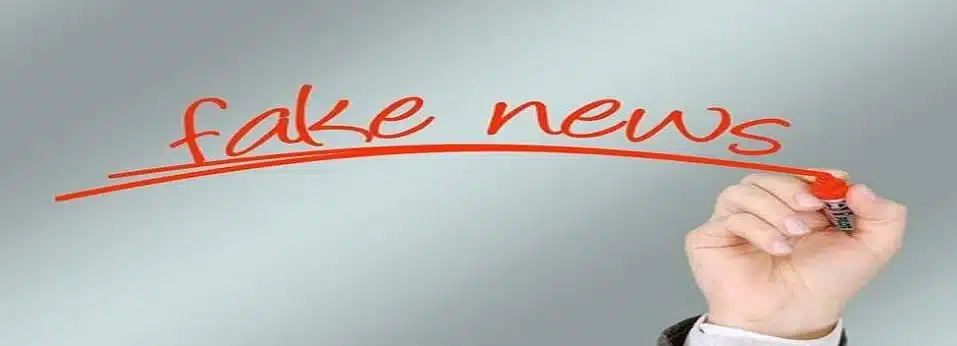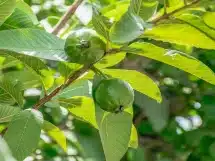We’ve been looking at some of the most widely circulated posts on WhatsApp, Facebook, and Twitter since the start of the pandemic. This week, we have compiled and debunked the 10 claims that are currently circulating.
Since the outbreak of coronavirus the entire world has been fighting multiple battles. Not only are we facing a global health crisis but also the crisis of an overload of mis/disinformation. In the past few months, social media has been abuzz with fake health advisories and conspiracy theories. Twitter has not been alien to this since many people have come up with false claims on their twitter handles. We have seen viral claims with false communal angles given to the present situation, imposter accounts misleading people as well as old news, and videos resurfaced and put under false context.
These posts have been able to fool tens of thousands of people. People have shared them widely, resulting in a chain of viral fake news spread across social media. Many people fall for false advisories and try them home, which may sometimes prove to be dangerous.
At First Check, we have been able to debunk many of the fake posts with the help of our fact-checking team of journalists and health experts.
Here is a list of some of the most popular Twitter posts related to COVID-19 which mislead people:
Claim:
A rumor circulated in Iran through Twitter that alcohol can cure coronavirus. The post claimed that if hand sanitizers made from alcohol can kill the virus, then drinking alcohol will keep one safe.

Fact:
Alcohol is not a cure for coronavirus, as clarified by the WHO. After believing in the rumor, at least 44 people in Iran’s southwestern Khuzestan and Alborz provinces died overnight from alcohol poisoning and over 210 people were hospitalised with many in a critical state. Since alcohol is banned in Iran, people turned to ingest industrial-grade alcohol after believing in rumours and in an effort to save themselves from coronavirus.
Claim:
A post falsely attributed to UNICEF that exposure to sunlight and drinking hot water will save one from the deadly coronavirus.

Fact:
UNICEF came forward in clarification and said that they are not the author of any such viral post. Many other health experts have also maintained that the claim is false, as a temperature of above 60 degrees is required to actively kill the virus and this high temperature is dangerous for the human body and no hot bath or saunas will ever be this hot to kill off the coronavirus.
Claim:
A controversial tweet by PETA, an animal rights organisation which claimed that according to scientists, contact with live animals or their dead flesh may be the source of the deadly virus.

Fact:
Public health officials are unanimous in their view that humans do not contract the coronavirus by eating meat or seafood. There is no scientific evidence about any foodborne transmission of COVID-19. In other words, the virus does not spread through eating meat or seafood. As basic guidelines though, WHO recommends proper hygiene while visiting meat markets, using clean knives and handling raw meat, milk, or animal organs with care, to avoid cross-contamination with uncooked foods.
Claim:
A rumour went viral on Twitter, which stated that the first person called ‘patient zero’ to contract COVID-19 was a scientist from the Wuhan Institute of Virology. It claimed that a woman named Huang Yanling was first infected with the Coronavirus.

Fact:
As soon as the post went viral, the Wuhan Institute of Virology, Chinese Academy of Sciences issued a statement which highlighted that false information is being circulated regarding the identification of Huang Yanling as ‘patient zero.’ The institute confirmed that she was a former student at the institute and had completed her master’s degree in 2015 and that she has been living elsewhere after her graduation. She is in perfectly good health and has not been infected by the virus at all.
Claim:
Karnataka BJP MP Shobha Karandlaje took to Twitter sharing a video with the claim that eight out of 70 Tablighis from Belagavi who had attended the Tablighi Jamaat event at Delhi’s Nizamuddin had tested positive for coronavirus She also claimed that the Tablighis in quarantine wards were misbehaving and spitting everywhere.

Fact:
The Belagavi Institute of Medical Sciences (BIMS) issued a clarification, stating that 33 Tablighis with travel had been admitted to BIMS and out of them only three were tested positive for COVID-19. The video also did not show any signs of misbehaviour from the Tablighi members and the staff clarified that the people were not roaming around the hospital and had been kept in isolation.
Claim:
Filmmaker Vivek Agnihotri shared a screenshot which read that weed kills coronavirus, written in the form of breaking news. There was also an appeal to make cannabis legal.

Fact:
The claim is misleading as there is no scientific evidence to prove that the plant can cure COVID-19. On performing a reverse image search it was revealed that this image has no certified background of corresponding to any news, but is in fact a meme generated from en.dopl3r.com. Through this website, it is extremely easy to find different templates and create memes.
Claim:
Social media was abuzz with posts claiming that hydroxychloroquine is found in nigella seeds (kalonji). It said that making a concoction of 7 Kalonji seeds with honey and hot water and taking it before breakfast can be used to prevent the COVID-19 infection.

Fact:
It is hypothesized that hydroxychloroquine, which is an anti-malarial drug, can have an inhibitory effect on COVID-19. But this is still under study and ICMR has warned against using this drug for the treatment of coronavirus without proper medical prescription. On the other hand, nigella deeds may have certain immune-boosting and antioxidant benefits, but WHO has never recommended nor has there been any research so far claiming nigella seeds (kalonji) and honey can cure against coronavirus.
Claim:
A major conspiracy theory that was all around the social media was that the Coronavirus patent was granted to Bill Gates Funded Institute In 2018 and that Bill Gates has created the new Coronavirus by sponsoring its research. This theory majorly evolved into existence as people questioned the event held by the Johns Hopkins Center for Health Security association with the Bill and Melinda Gates Foundation and World Economic Forum, which focused on emergency preparedness in the event of a “severe pandemic.” The Gates Foundation also helped fund the UK’s Pirbright Institute, which holds a patent related to the development of a weakened strain of the coronavirus that could be used to vaccinate birds.

Fact:
These were all misleading claims. The Bill and Melinda Gates Foundation had been working on the emergency response program to build a culture of preparedness to combat viral diseases. Since the foundation chose to focus on infectious disease threats, it has announced to donate $100 million to Coronavirus detection, isolation, and treatment efforts. Previously, it has collaborated with research institutes to tackle infections, improve well-being, and protect at-risk populations.
Claim:
An image that showed a large crowd of Muslim men praying was widely shared with the claim that this image is from Tamil Nadu where these people are coming out at night to pray, flouting all lockdown rules.

Fact:
On doing a reverse image search it was found that the image is two years old and the large crowd of Muslim men praying is from Prayagraj in Uttar Pradesh from 2018. The Tirupattur district police, also debunked the false claim and denying that the photo is from Tamil Nadu
Claim:
Among many other advisories and prevention methods, one of the most viral claims was that having garlic and sesame oil in your diet or rinsing your nose and mouth with saline water can prevent the infection.

Fact:
These claims had no medical proof or scientific background. The WHO in order to curb this rampant confusion spreading around regarding health warnings has busted all these myths on their official site. Having these things may be beneficial otherwise, but are not a cure or a preventive measure for COVID-19.


















Add Comment